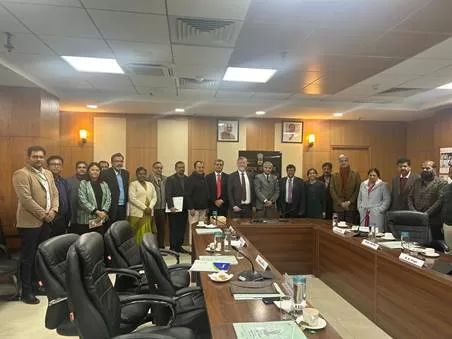
ICD 11 TM Module 2, Morbidity Codes, World Health Organization launch event will be held in New Delhi on 10th January, 2024. The data and terminology relating to diseases based on Ayurveda, Siddha, Unani systems will now be included in the WHOs ICD11 classification.
The data and terminology relating to diseases based on Ayurveda, Siddha, and Unani systems will now be included in the ICD11 classification of WHO. This effort will lead to global uniformity in ASU (Ayurveda, Unani, and Siddha) medicine as a code of vocabulary defining diseases. The World Health Organization (WHO) has developed a classification series called International Classification of Diseases (ICDs) to classify diseases internationally. The global data on diseases currently available is mainly based on healthcare practices to be diagnosed through modern biomedicine. The classification of data and terminology relating to diseases based on Ayush systems such as Ayurveda, Siddha, Unani etc. is not yet included in the WHO ICD series.
Director, Integrated Health Services, WHO Geneva was present at the premises of Ministry of Ayush today (9th January ). Secretary, Ministry of Ayush along with all senior officials and members deliberated on the efforts of Ministry of Ayush and importance of inclusion of Traditional Medicine in ICD 11. Pradeep Dua, Technical Officer Tradition, Complementary and Integrative Medicine, Integrated Health Services, WHO also participated in the discussion.
Central Bureau of Health Intelligence (CBHI) is an agency under the Ministry of Health and Family Welfare that serves as the WHO Collaboration Centre for ICD-related activities. It facilitates the collection and dissemination of data on various diseases and mortality. The Ministry of Ayush has already developed the Code for Ayurveda, Siddha, and Unani Medicine through the National Ayush Morbidity and Standardized Electronic Portal (NAMSTE). The Ministry of Ayush in collaboration with WHO has prepared a categorization of data and terminology related to diseases based on Ayush – Ayurveda, Siddha, and Unani systems under TM2 module of ICD11 series. The Ministry of AYUSH has also signed a Donor Agreement with the World Health Organization for the same.
This effort will further strengthen and expand India’s public healthcare delivery system, research, Ayush insurance coverage, research and development, and policy-making systems. In addition, these codes will also be used in the formulation of future strategies to control various diseases in the society. Many other member countries of the World Health Organization are also willing to implement a similar format to include the terminology of traditional medical diseases in the ICD.
Infectious diseases like Malaria and lifestyle diseases like chronic insomnia are included in this classification. Ayurveda, Siddhas, and Unani, Vertigo Guidance Disorder (parent name), commonly recognized by the three traditional systems, as a nervous system disorder known in Ayurveda as ‘Bhramaha’ siddha as ‘Ajal Kirkrippu’ and in Unani as ‘Sadra-o-Dwar’.
Under ICD-11, there will be an international coding of such terminology and the names and data of prevalent diseases of Ayurveda, Siddha, and Unani Medicine will be notified in the code internationally through the TM 2 module. ICD11 will be released on 10th January, 2024 at New Delhi in the joint presence of officials from WHO and Ministry of AYUSH.











